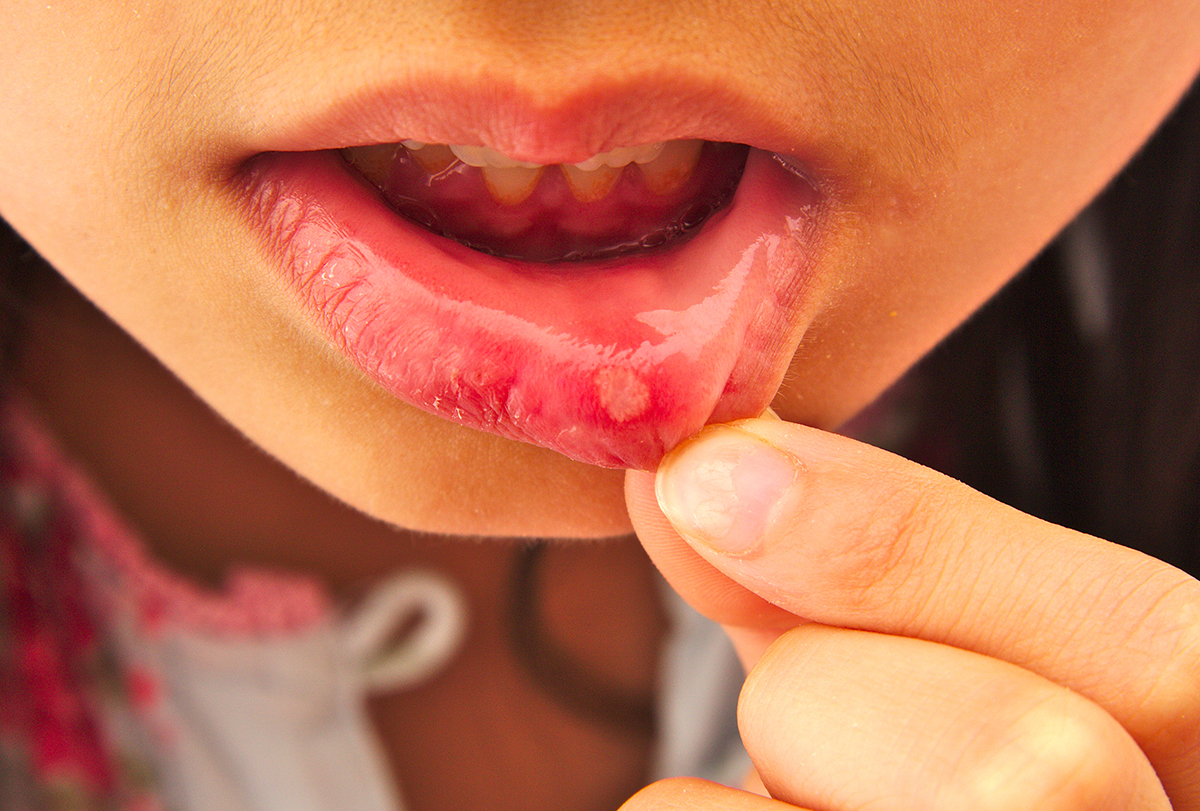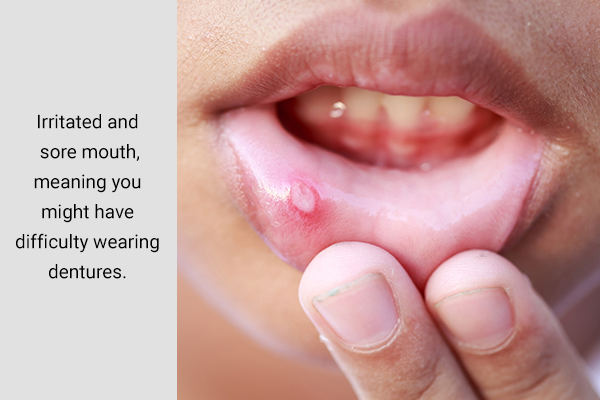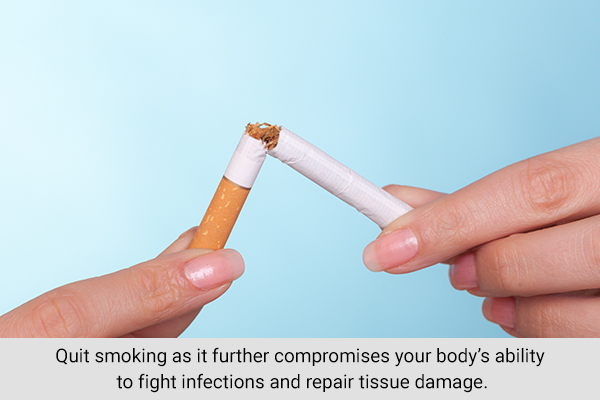In this article:
The foods you eat ultimately get converted into sugar or glucose by the body, which is released into the bloodstream. This stimulates the pancreas to release a hormone called insulin, which ensures that the sugar is transferred from the blood into the cells for energy use.

However, if your body does not produce enough insulin or does not respond to it properly, the sugar released from the food will not be absorbed from the blood, resulting in diabetes. (1)
High blood sugar hampers your body’s ability to function properly and paves the way for many other illnesses. It not only damages the body’s tissues and vital organs, but it also slows down healing.
High blood sugar can exacerbate even a minor ailment into something serious, so you need to be extra cautious to preserve your health if you have diabetes.
While there is no permanent cure for diabetes, it can be effectively managed through medication, dietary control, regular exercise, and other healthy lifestyle interventions that help keep your blood sugar within normal range.
One of the underrated complications of diabetes is its influence on gums and oral health.
How Common Is Gum Disease in People With Diabetes?
The American Dental Association (ADA) has highlighted an increased predisposition of diabetics to periodontal issues. (2) It affects nearly 22% of all diabetics, making it the leading oral health problem among them.
Moreover, gum disease is known to increase blood sugar, which makes it even more difficult for those with diabetes to manage their condition. This is why ADA places great importance on good oral health as a means to improve blood sugar control in those living with diabetes.
Poorly controlled blood sugar levels will increase your risk of not only oral health problems but also various other ailments that can have serious implications.
Why are people with diabetes more prone to gum disease?

The human mouth is naturally populated by various strains of bacteria that live in harmony with each other and don’t harm the body so long as they are under control.
They feed on sugar to grow, and high blood glucose can make them proliferate rapidly to cause infections. This is why uncontrolled diabetes is considered a bad omen for oral health.
More so because it limits salivary flow, which is needed to wash down any food debris stuck inside the mouth after eating. The lack of saliva causes a buildup of such food particles inside the mouth that provides more sugar for bacteria to feed on.
The mixture of organic matter, bacteria, and saliva forms a sticky biofilm called plaque that settles on your teeth and gums. As the plaque bacteria break down food, they release corrosive acids that damage and stain the tooth enamel.
The unchecked accumulation of plaque bacteria inside the mouth can end up infecting your gums. This early-stage gum disease is referred to as gingivitis, wherein the infection is limited to the gingival tissue.
In the absence of proper and timely treatment, the infection can become more severe, causing the gum tissue to pull back and expose the roots of the teeth. It will gradually spread deeper into the teeth and underlying jawbone and cause irreparable damage, often resulting in complete tooth loss. This advanced stage of gum disease is referred to as periodontitis. (3)
The body normally responds to any infection by triggering an inflammatory response, but diabetes heightens such response, resulting in more severe symptoms. Plus, infection makes your blood sugar rise even further, making it more difficult to control diabetes. Thus, you are stuck in a vicious cycle.
To put it simply, poorly managed diabetes not only makes you more susceptible to gum disease but also compromises your body’s ability to fight it. The best way to avoid this is to keep diabetes under control, maintain good oral health, and seek treatment at the first sign of gum or dental problems.
What Are the Common Oral Health Problems?

Untreated or severe diabetes can lead to the following problems in the oral cavity:
- Reduced salivary flow, which renders your mouth dry and increases the risk of cavities, bad breath, and infections inside the mouth (4)(5)
- Dental decay, staining, and infections
- Red, swollen, painful, and bleeding gums, which are considered early signs of gum infection (gingivitis) (6)
- Changes in the color or texture of gum tissue, gingival recession, loose teeth, or complete tooth loss, which are all common signs of advanced gum disease or periodontitis
- Inability to taste food properly
- Burning sensation in the mouth
- Slow wound healing
- For children with diabetes, eruption of teeth at an age earlier than is typical
- Irritated and sore mouth, meaning you might have difficulty wearing dentures
- Fungal infections (oral thrush)
- Blisters, ulcers, or abscesses inside the mouth (7) that take a long time to heal or keep coming back
Preventive Tips Against Diabetes-Related Oral Health Problems

High blood sugar puts you at an increased risk of tooth and gum problems, which is why people with diabetes should be extra vigilant about their oral health. Here are some measures that can help keep your mouth healthy:
- Go for regular dental checkups to catch oral health problems in their early stages and seek timely treatment.
- Keep your blood sugar under control. (8)
- Quit smoking as it further compromises your body’s ability to fight infections and repair tissue damage. (8)
- The ADA recommends using fluoride toothpaste to brush your teeth twice a day, for two minutes each. (8)(9) Your toothbrush should have soft bristles to minimize enamel and gum damage while scrubbing. (10) You can use a manual or electric brush as per your preference so long as it has the right size and shape to reach all areas of your mouth. Hold the brush at a 45° angle to the gums and gently move it back and forth. Thoroughly clean the outer, inner, and chewing surfaces of your teeth in this way.
- Floss once a day to remove the plaque and food particles that get stuck between the teeth and along the gum line. (11)
- Clean your dentures or dental partials every day.
- Avoid carbonated beverages that contain too much acid, which can wear off your tooth enamel over time. (12) This is especially true for people with diabetes since they generally don’t produce enough saliva to neutralize the acid from these beverages.
- Limit your intake of sugary or starchy foods, which provide sustenance to mouth bacteria and increase the risk of tooth decay. Plus, this step is crucial for keeping your diabetes under control, which is an important prerequisite for good oral health.
What Are Beneficial Foods for Oral Health?
People with diabetes must consult their healthcare provider or nutritionist to come up with a diet plan that meets all their nutritional needs while keeping their blood sugar under control.
While doing so, consider including the following foods that can help protect your teeth and gums from diabetes-related complications in your diet:

- Fibrous foods such as fruits and vegetables require a lot of chewing, which stimulates the flow of saliva in the mouth. Saliva rinses and hydrates the mouth, reducing plaque buildup inside it. This helps lower the risk of cavities and gum disease. Plus, saliva contains calcium and phosphate in trace amounts, which are essential components of your teeth. Thus, the increased salivary flow helps restore these minerals to your teeth so that they become stronger and more resistant to decay. (13) Lastly, biting and chewing the hard surfaces of these fruits and vegetables may help scrub off the plaque and food debris from your teeth and gums.
- Milk, cheese, unflavored yogurt, and other dairy products are high in calcium and phosphate, both of which help strengthen and rebuild damaged teeth. (14) Cheese may even increase saliva production to further preserve your oral health.
- Green and black teas are full of polyphenols that exhibit strong antioxidant and antibacterial properties. These plant compounds can help reduce the bacterial load in the mouth and thus prevent dental decay and gum disease. Tea may also contain fluoride, which helps fortify your tooth enamel against the acid released by mouth bacteria. (15)
- Sugarless chewing gum can trigger your salivary glands to secrete more saliva, which will help flush down food particles stuck in your mouth.
- Fluoridated drinking water or foods made with fluoridated drinking water are great for your oral cavity, particularly your teeth. Fluoride is a naturally occurring mineral that is considered essential for dental health. It makes your enamel stronger and protects it from the acid released by plaque bacteria, reducing the risk of cavities and other forms of tooth decay. (16)
Final Word
Keeping your teeth and gums healthy is important not only for cosmetic purposes but also for your overall health. Untreated tooth decay and gum disease can cause irreversible damage inside the mouth.
Plus, you may end up swallowing the germs with the saliva, spreading the infection further into the body. This can be dangerous as it can affect vital organs such as the heart.
So, it is extremely vital that you take your oral health seriously, especially if you have diabetes. High blood sugar not only makes you more vulnerable to severe forms of gum disease and tooth decay, but it also compromises your body’s ability to fight these problems. In such cases, a relatively minor issue can deteriorate rather quickly into a grave disorder.
This underlines the importance of early diagnosis and treatment. Consult your dentist as soon as you notice any problem with your teeth and gums. This can save you from severe infections, tooth loss, and other serious complications later on.
- Was this article helpful?
- YES, THANKS!NOT REALLY


